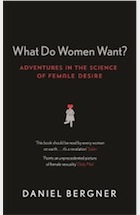“Mankind, it seems, makes a poorer performance of government than of almost any other human activity.”
-Barbara Tuchman, The March of Folly
-Barbara Tuchman, The March of Folly
“This is not rocket science”
-Bill Frist on fixing health care, The New York Times
-Bill Frist on fixing health care, The New York Times
As these two quotes illustrate, there is something strangely conflicted about contemporary views on government and policy. On one hand, many people are in apparent agreement that government frequently accomplishes less than it ought to, sometimes embarrassingly so. Yet on the other hand, many of these same people are also of the opinion that the failings of government do not imply any great difficulty of the problems themselves—that they are not rocket science, as it were.
Typically the conflict is resolved with reference to the presumed incompetence, pigheadedness, or outright corruption of our leaders. If only we elected the right people, gave them the right incentives, and—above all—if only our political leaders exhibited a little more common sense, everything would be alright. That both “we” and “they” consistently fail to follow these simple steps proves only that common sense is not nearly common enough.
There may be some truth to this attitude. But as a sociologist, I’ve also learned to be skeptical of common sense, especially when it is invoked as the solution to complex social problems.
Sociology has had to confront the criticism that it has “discovered” little that an intelligent person couldn’t have figured out on his or her own.
Sociology, of course, has its own conflicted history with common sense. For almost as long as it has existed, that is, sociology has had to confront the criticism that it has “discovered” little that an intelligent person couldn’t have figured out on his or her own.
Why is it, for example, that most social groups, from friendship circles to workplaces, are so homogenous in terms of race, education level, and even gender? Why do some things become popular and not others? How much does the media influence society? Is more choice better or worse? Do taxes stimulate the economy?
Social scientists have struggled with all these questions for generations, and continue to do so. Yet many people feel they could answer these questions themselves—simply by examining their own experience. Unlike for problems in physics and biology, therefore, where we need experts to tell us what is true, when the topic is human or social behavior, we’re all “experts,” so we trust our own opinions at least as much as we trust those of social scientists.
Nor is this tendency necessarily a bad reaction—any theory should be consistent with empirical reality, and in the case of social science, that reality includes everyday experience. But not everything about the social world is transparent from common sense alone—in part because not everything that seems like common sense turns out to be true, and in part because common sense is extremely good at making the world seem more orderly than it really is.
Common sense isn’t anything like a scientific theory of the world.
As sociologists are fond of pointing out, common sense isn’t anything like a scientific theory of the world. Rather it is a hodge-podge of accumulated advice, experiences, aphorisms, norms, received wisdom, inherited beliefs, and introspection that is neither coherent nor even internally self-consistent. Birds of a feather flock together, but opposites also attract. Two minds are better than one, except when too many cooks spoil the broth. Does absence make the heart grow fonder, or is out of sight out of mind? At what point does try, try again turn into flogging a dead horse? And if experience is the best teacher, when should one also maintain a beginner’s mind?
The problem with common sense is not that it isn’t sensible, but that what is sensible turns out to depend on lots of other features of the situation. And in general, it’s impossible to know which of these many potential features are relevant until after the fact (a fundamental problem that philosophers and cognitive scientists call the “frame problem”).
Nevertheless, once we do know the answer, it is almost always possible to pick and choose from our wide selection of common-sense statements about the world to produce something that sounds likely to be true. And because we only ever have to account for one outcome at a time (because we can ignore the “counterfactuals,” things that could’ve happened, but didn’t), it is always possible to construct an account of what did happen that not only makes sense, but also sounds like a causal story.
To take a common example, think about how we explain success. Why is the Mona Lisa the most famous painting in the world? Why did J.K. Rowling‘s Harry Potter books sell over 300 million copies? And why is Madonna the most successful female musical artist of all time? Now that we know who these superstars are, their success seems easy to explain—common sense even. They simply outperformed the competition. Whether they did that through pure genius, clever marketing, or sheer tenacity is a matter of debate (you be the judge), but in the end, it doesn’t really matter. In the competitive marketplace of ideas, a product succeeds because it represents what people want—otherwise, they wouldn’t have devoted their scarce time, money, and attention to it. Right?
Well, sort of. But if that’s true, why are superstars so hard to pick out in advance? Why did several children’s publishers reject the initial Harry Pottermanuscript? Why did no one pay much attention to the Mona Lisa for nearly 400 years? And why did music critics dismiss the early Madonna as an attention seeker with limited talent? Whatever their personal preferences, how could they have failed to understand the demands of the marketplace, which after all is precisely what they are rewarded for doing?
Nor is it just the critics who get their predictions wrong—marketers can’t seem to figure out what will sell either. If they could, they wouldn’t waste their efforts on the vast majority of books, movies, and albums that lose money. So what explains why some cultural products are stunningly successful, while most aren’t; and why at the same time, no one, including the experts, seems to be able to predict which is which?
A few years ago, my students and I studied exactly this question by setting up an experiment in which roughly 15,000 participants were asked to listen to, rate, and download songs by unknown bands off a website we created. Some of the participants had to make their decisions independently, while others had information about which of the songs other people liked. We found two results. First, in the “social influence” condition, popular songs were more popular (and unpopular songs less popular) than in the independent case. But second, it became harder to predict which particular songs would be the most popular.
What these results suggest is that in the real world, where social influence is much stronger than in our artificial experiment, enormous differences in success may indeed be due to small, random fluctuations early on in an artist’s career, which then get amplified by a process of cumulative advantage—a “rich-get-richer” phenomenon that is thought to arise in many social systems.
The random fluctuations arising from social influence were larger than those arising from differences in quality.
A critical feature of this experiment was our ability to create multiple “worlds” in which randomly assigned groups of people could create different versions of history in parallel with each other. By observing how popular the same song became in different worlds, we could measure directly how much of its success can be attributed to some intrinsic “quality,” and how much results from random chance. We found that although, on average, good songs do better than bad songs, the random fluctuations arising from social influence were larger than those arising from differences in quality.
The problem with this explanation, however, is that in real life we never get to experience these multiple histories—only the one history that we have lived through. So although one can argue that Madonna or Harry Potter or even Shakespeare may owe their success more to random chance and cumulative advantage than to intrinsic superiority, it is impossible to refute the common sense view that history took the path that it did because the winners embodied precisely the greatness to which we attribute them. And for a Madonna or a Harry Potter or a Shakespeare fan, that is typically the end of the argument.
Common sense, in other words, is extremely good at making the world seem sensible, quickly classifying believable information as old news, rejecting explanations that don’t coincide with experience, and ignoring counterfactuals. Viewed this way, common sense starts to seem less like a way to understand the world, than a way to survive without having to understand it.
That may have been a perfectly fine design for most of evolutionary history, where humans lived in small groups and could safely ignore most of what was going on in the world. But increasingly the problems of the modern world—distributions of wealth, sustainable development, public health—require us to understand cause and effect in complex systems, with consequences unfolding over years or decades. And for these kinds of problems, there’s no reason to believe that common sense is much of a guide at all.
Fortunately, in recent years the explosive growth of the Internet has brought with it the ability to measure the actions and interactions of millions of people simultaneously. Not just social networking services like Facebook, Twitter and YouTube, but email interactions, instant messaging, and Internet phone calls all provide measurable traces of the person-to-person interactions that have always been at the core of social life, but have until recently been invisible to science.
Already this flood of data has generated enormous interest in the research community, with thousands of physicists and computer scientists beginning to pay attention to problems traditionally in the domain of the social sciences. It’s tempting to look back at past technological breakthroughs, such as the telescope or the microscope, when new instrumentation made the previously invisible visible, and wonder if perhaps social science is on the edge of its own scientific revolution.
Social problems, that is, must be viewed not as the subject of rhetorical debates, but as scientific problems
But if we are to make use of these impressive new capabilities to address the kinds of problems that governments have historically failed to solve, we also need to think differently about the problems themselves. Social problems, that is, must be viewed not as the subject of rhetorical debates, but as scientific problems, in the sense that some combination of theory, data, and experiment can provide useful insights beyond that which can be derived through intuition and experience alone.
Clearly we’re a long way from a world in which cause and effect in social and economic systems can be established with the level of certainty we’ve come to expect from the physical sciences. In fact, the world of human behavior is sufficiently complicated and unpredictable that no matter how long or hard we try, we will always be stuck with some level of uncertainty, in which case leaders will have to do what they’ve always done and make the best decisions they can under the circumstances.
It sounds like a lot of effort for an uncertain payoff, but curing cancer has also proven to be an enormously complex undertaking, far more resistant to medical science than was once thought, yet no one is throwing up their hands on that one. It is time to apply the same admirable resolve to understand the world—no matter how long it takes—that we display in our struggles to address the important problems of physical and medical science to social problems as well.






